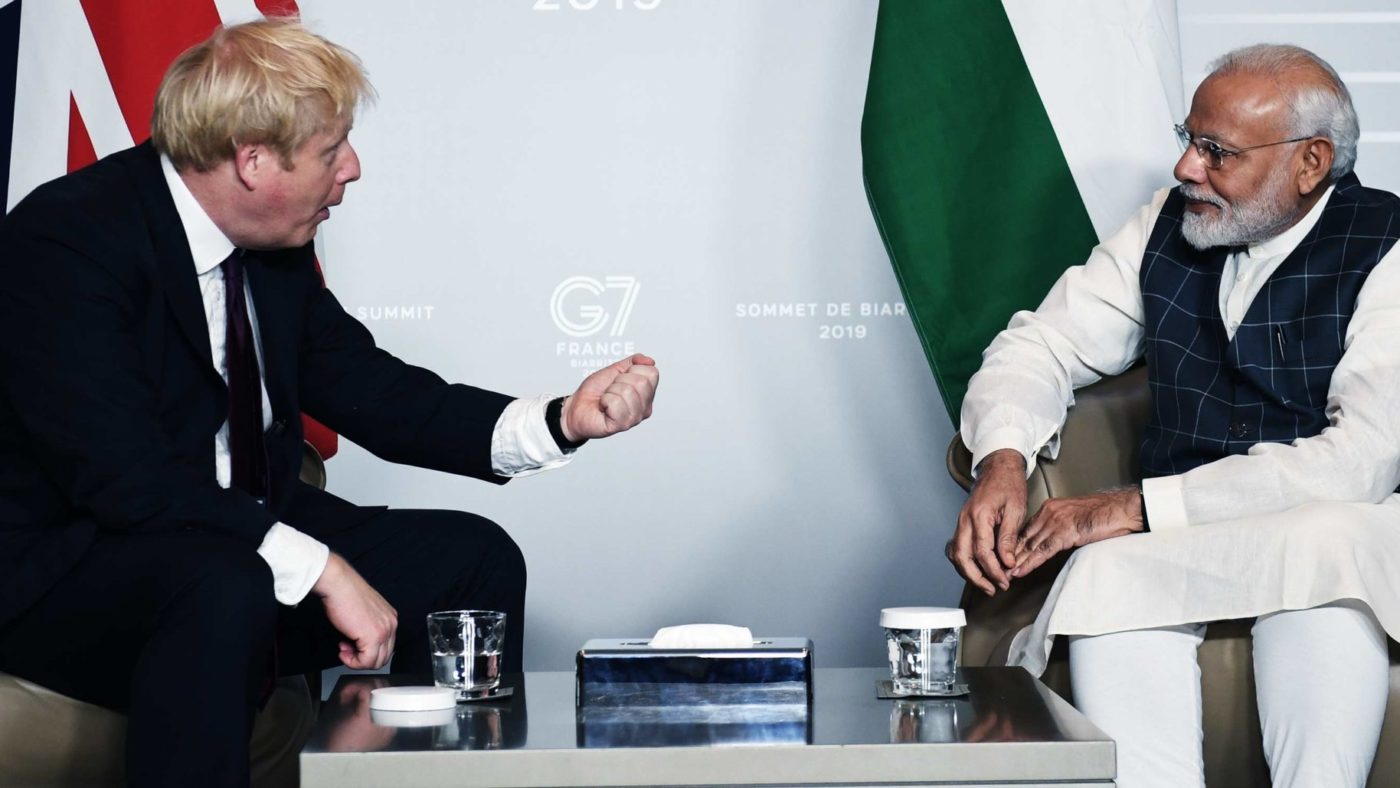The UK’s trade dependence on an economically stagnant Eurozone and a Chinese economy controlled by an increasingly belligerent and expansionist government is unsustainable. Our departure from the European Union offers a unique opportunity with which to diversify our trade, achieve sustainable growth, and reassert our position on the international stage.
The EU is currently the UK’s single largest trading partner. However, the economic outlook for the continent is unfavourable. Coronavirus has served to exacerbate existing economic difficulties facing the Eurozone. A collapse in the oil price, a crash in economic output, long-term economic stagnation, and irresponsible spending have left the Eurozone facing the threat of ‘Japanification’ characterised by long-term deflationary pressure and anaemic growth.
Europe is no longer the reliable trading partner it once was. It’s unlikely to deliver the economic growth necessary to drive the increase in demand for our goods and services we require. While we should seek to maintain effective trade relations with the EU, we also need to seize the opportunity Brexit offers and strengthen ties with emergent, fast-developing nations to grow demand for British exports and stimulate our domestic growth.
Just as Covid-19 has catalysed economic threats in Europe and elsewhere, so too has it laid bare the revisionist nature of the Chinese government: a government that persistently ignores international trade agreements, flouts intellectual property rights, suppresses democratic protests in Hong Kong, persecutes its own citizens, and undermines the sovereignty of its neighbours.
Brexit offers us greater capacity to reassert our position on the world stage and, in coordination with other allies, use our foreign and trade policies to discourage wayward nations such as China from acting with impunity.
The Foundation for Independence is a recently established organisation committed to highlighting the opportunities Brexit offers, such as enhanced trade, and setting out how these can be capitalised upon. Its inaugural report, published this week, identifies trade opportunities for the UK in the Indo-Pacific region. It offers a compelling case for why the Government should make Britain an engaged partner in the region, with trade shifted away from the EU and China toward stable, reliable, fast-growing partners around the Pacific rim. It identifies countries with similar economic development profiles to the UK, such as South Korea, Taiwan, Japan and Singapore, and Commonwealth members, such as India.
The report explains why developing trade with these countries should not be regarded as compensatory, but rather as enhanced opportunities, tailored exactly to our national interest and available only as a direct, positive consequence of Brexit.
Existing EU trade deals with Japan and South Korea are cited as examples of the unsatisfactory arrangements that currently constrain the UK. These deals are criticised for their failure to address key priorities around services and data flows important to our needs. Our EU departure presents the opportunity for a root-and-branch review of existing trading instruments put in place by the EU and to customise these to our needs.
Through the newly formed Foreign, Commonwealth and Development Department, a key priority, the authors argue, should be to spearhead international efforts to cast a spotlight upon, and deter China’s actions through diplomatic forums, such as the UN and the WTO.
Economically, it argues the country’s dependency on China should be reduced significantly in areas key to our national security, including the import of pharmaceuticals and Chinese direct investment in infrastructure.
Rightly, it also calls for the development of a ‘special relationship’ with democratic India. Predicted to become a $10 trillion economy by 2030, India’s rapidly expanding demand in sectors central to the UK economy, such as financial services – matched with its expanding ‘consumer’ class – makes it a key priority for trade development post-transition.
At the moment our relationship with India is lacking. At 17th, UK is languishing far outside the ranks of India’s key trading partners, with bilateral trade worth a relatively modest £20.5 billion.
The Commonwealth, the Department for International Trade and the commercial, education and research forums in place between our two countries should be used to promote awareness of the UK as an investment centre for India and vice versa. We should also make it easier, for example, for Indian students to study in the UK by relaxing student visa restrictions for the estimated 130 million Indian students who, by 2030, will be at university age.
The UK is currently confronted with a profound crossroads. The centre of gravity of global trade is shifting. Brexit offers us the opportunity to adapt to that change by developing stronger ties with countries all across the globe. We need to embrace that opportunity.
Click here to subscribe to our daily briefing – the best pieces from CapX and across the web.
CapX depends on the generosity of its readers. If you value what we do, please consider making a donation.


